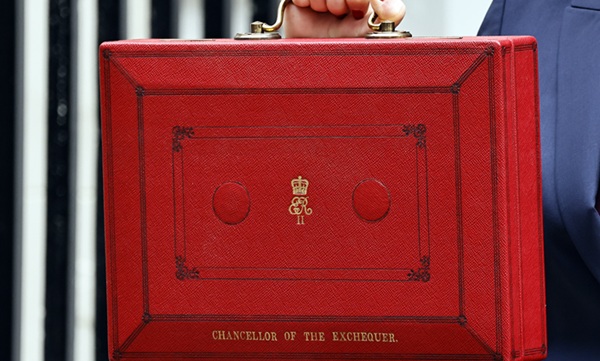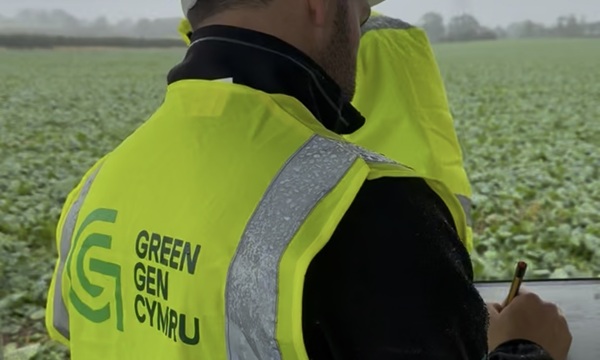Business leaders across Wales have called for prompt action to deliver on commitments made in the UK Government’s Budget, which they say did not present a clear plan for growth.
Chancellor of the Exchequer Rachel Reeves presented her second Budget after weeks of speculation and announcements, and shortly after the Office for Budget Responsibility accidentally published its economic and fiscal outlook document on its website too early.
The Federation of Small Businesses (FSB) Wales gave a mixed response to the Budget, welcoming the major new investments in Welsh jobs, energy and technology which were mentioned in the Chancellor’s speech but which had already been announced over previous weeks. But the organisation warned that tax rises will hit small Welsh businesses.
The Budget provides an extra £505 million for the Welsh Government and the FSB called for Welsh Government to use the additional funding to help small businesses across Wales.
Joshua Miles, Head of FSB Wales, said:
“There's some positive news for Wales through the two AI Growth Zones, promising over 8,000 jobs, and the UK’s first small modular reactors at Wylfa on Anglesey. However, UK-wide tax rises and ongoing cost pressures risk another tough year ahead for businesses across Wales.”
The Chancellor announced an overhaul of the business rates system in England, with permanently lower tax rates for retail, hospitality and leisure (RHL) properties, alongside a higher rate on properties with rateable values of £500,000 and above.
The FSB called on the Welsh Government to support RHL businesses in a similar way.
“The extra £505 million and new borrowing flexibilities give Welsh Government the opportunity to help small firms through lower rates and greater investment in infrastructure,” said Joshua. “It's crucial that this extra money is used to replicate UK Government's decision to permanently lower tax rates for retail, hospitality and leisure properties in Wales.”
Sara Jones, Head of the Welsh Retail Consortium, also said attention was now on the Welsh Government to see how it responded to the Chancellor’s action on business rates.
She said:
“This Budget paints a mixed and at times contradictory picture for the retail sector – some long-overdue relief for high-street businesses operating in England, but new financial pressures that threaten to undermine it. Retailers now face an even tougher balancing act as they try to invest, recruit, and keep prices down for customers.
“The standout announcement for retailers was the permanent cut to business rates for most English stores – a reduction of up to ten or 20 per cent. Attention now turns to the Welsh Budget. Retailers in Wales will be hoping ministers abandon the proposed business rates surtax on medium and larger stores. Pushing ahead with it would leave Welsh retailers and Welsh high streets at a serious competitive disadvantage compared with those stores just across the border, putting future jobs and investment on the line.
“While increases to the National Living Wage were widely expected, the steeper rise in the minimum wage for under-21s risks reducing opportunities for younger workers.
“Ultimately, this Budget delivers clear winners and losers across the sector. The consequences for Welsh consumers will become clearer in the months ahead – but it’s already evident that these measures fall short of what’s needed to ease the inflationary pressures still bearing down on the industry.”
Russell Greenslade, Director, CBI Wales, said:
“The Government’s growth mission is currently stalled. While the Chancellor has succeeded in creating the fiscal headroom she needed, a scattergun approach to tax risks leaving the economy stuck in neutral.
“Adding national insurance to salary sacrifice pension contributions curtails savings and pushes up the cost of employment. Coming on top of the rise to the National Living Wage, increased employment costs make it even more expensive for employers to offer jobs to young people and jobseekers.
“The Government should be commended for protecting capital spending, boosting innovation, sticking with the corporate tax roadmap, and hiring the planning officers business asked for. But business will still rue a missed opportunity to be bold and press on with much needed tax reform, simplification and alignment of incentives to catalyse business investment and job creation.
“With business investment and profitability weaker as a result of these decisions, the Government must now double-down on leveraging the experience and expertise of enterprise to find the step-change in economic growth that has proven elusive. One of the biggest things the Government can do right now is get round the table with business to find a landing zone on the Employment Rights Bill that works for everyone.
“Support is needed for local supply chains to be integrated into plans for the Wylfa Small Modular Reactor, ensuring the nuclear site delivers on its promise to benefit the North Wales economy and keep Wales’ clean energy ambitions on track. We also welcome the Government’s ambitions for the South Wales semiconductor cluster, AI Growth Zones and development of the Port Talbot Celtic Freeport site. These will all boost the regions' ability to attract world leading manufacturing and industrial sectors, as well as skilled jobs.”
Phil Jones, Chief Executive of Business in Focus, said:
“The Autumn Budget brings welcome investment in tech and skills. However, rising wage and tax pressures pose real challenges for many SMEs, especially in retail and hospitality. Budget success for Welsh SMEs may therefore be informed by the reaction of potential investors into Wales and the choices the Welsh Government has at its disposal on two key areas. 1. How to spend the £500m early Christmas present sent across the Severn bridge and 2. The opportunity to level up on business rates”
Richard Selby, co-founder of Pro Steel Engineering and National Chair of IoD Wales, said:
“It was good to hear the Chancellor highlight fresh investment for Wales and a clear intention to work more closely with entrepreneurs. The focus on making, buying and selling British is welcome too. The question that always follows a Budget is how and when these plans will happen. Confidence among IoD members is already low, especially in Wales, so we need to see prompt action and clear timelines. Without that, it is hard for businesses to plan and move forward with certainty.”
Robert Lloyd Griffiths, Director of ICAEW in Wales said:
“For a Government whose number one ambition is economic growth – and a Chancellor who had the opportunity to go for growth today – this Budget has not provided the confidence boost businesses in Wales urgently need. Rising costs and pressures on cash flow continue to challenge employers across our nation. What businesses need now is clear support, stable conditions, and the confidence to invest.
“Long-term investment is vital for Wales’s future prosperity, but delivery must match ambition. Employers need tangible help, investors need certainty, and businesses need hope. Above all, action is required to ensure the Welsh economy can grow and thrive.”
Sarah Bailey, CEO of West Cheshire & North Wales Chamber of Commerce, said the decision not to impost major new tax rises would “calm nerves and provide a degree of short-term stability”. She said many of the measures announced, such as commitments to transport and infrastructure projects, had been called for by businesses across the region.
But she said:
“However, businesses here share national concerns about changes to salary sacrifice arrangements, mandatory wage rises and the continued Energy Profits Levy, which together maintain upward pressure on costs. We are also concerned that almost £1 billion of UK-wide business support funding has been removed and replaced with a more selective, region-focused model. This risks widening inequalities between urban areas and rural and coastal communities, something particularly relevant to parts of North Wales and Cheshire’s rural economy.
“While most firms in our region will adapt to this new landscape, many are still grappling with rising input costs, tight margins and weaker demand. Ultimately, this Budget offers stability in some areas but falls short of providing the clear, transformative plan for growth that local businesses need. The priority now must be delivery, clarity and sustained support to help our region continue creating jobs and investment.”
David Williams, South West & Wales Office Senior Partner at KPMG UK, said:
“The £505 million in additional Barnett formula funding, combined with two new AI Growth Zones, positions Wales at the heart of the UK’s technology future.
“The £10 million investment on semiconductor technologies in South Wales alongside the small modular reactor project in Anglesey back Wales’ existing industrial strengths. With Anglesey Freeport now fully approved and £4.2 million for Port Talbot land remediation, there's a clear infrastructure investment pipeline.
“For our SME-dominated economy, free apprenticeships for under-25s will be transformational in building the skilled workforce these growth sectors need, though businesses will be managing the broader impacts of pension and wage cost increases announced today.
“Wales has the investment commitments and strategic focus, but delivery will be key to turning funding announcements into jobs and growth.”
The Chancellor also announced a reduction in capital gains tax relief from 100% to 50% on disposals to Employee Ownership Trusts (EOTs).
Peter Turk, Senior Associate in Corporate at Knights, said:
“EOTs were introduced to promote diversity and engagement in the UK economy, so curbing measures that support employee ownership may seem counterintuitive. That said, instances of abuse have occurred, and so reform is not entirely unanticipated.
“Since they were introduced, EOTs have become an increasingly popular succession route for owner-managed businesses, offering stability for businesses and rewarding employees.
“While there is no doubt this change will affect their attractiveness, even at 50% the relief is still substantial compared to other exit strategies.
“Our advice has always been that EOTs only work when driven by a genuine belief in employee ownership as a platform for growth—not simply tax savings. We therefore expect EOTs will continue to be an attractive option for many sellers.”














